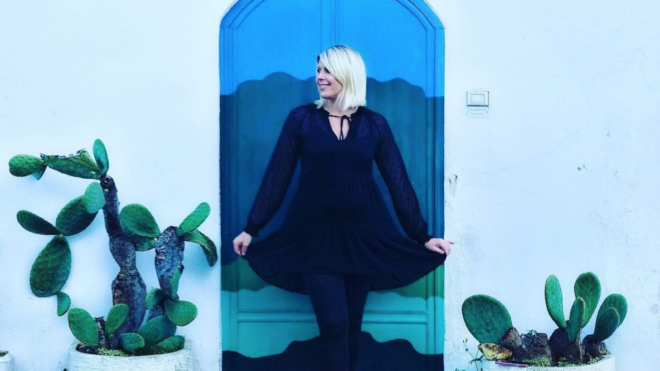The old adage “Sticks and stones may break my bones but words will never hurt me” we’re taught as kids is a lie. Words hurt. They burn, and they linger. Growing up, words like stupid, crazy, retarded, or lame were commonly thrown around in school and home as jokes with friends and cousins, but I had no idea how damaging they would be in the long run.
We playfully said those words without ill intentions, yet as an adult, I see how clueless we were to its disabling effects. I live with bipolar disorder. I say live because I choose to live as opposed to journey about under the perspective of “having”. My mental illness is not the end-all, be-all: It doesn't possess me; it is merely a layer of many things that contribute to my makeup.
There’s a certain face that people make when you tell them you have a mental illness.
You know — the slight smug in the crease of the lips, a rise of the shoulders, and a squint of the eyes. And it’s the same one every time. It’s the look of pity, a sense of superiority, and the urgent need to help “fix” you.
I don’t need to be fixed. Yet for some, if you’re not a project, then you no longer serve a purpose in their lives. I learned this the hard way with my ex-best friend.
When I was diagnosed in August of 2014, she was in Madrid, Spain. Even with a six-hour time difference, we talked on WhatsApp daily. Her support got me through my darkest days. She was full of encouragement, listening to no end, and a port of understanding. Even when she returned to the States, she’d come over and keep me company because I was still too depressed to leave the house. And when she eventually did get me out, we had the best times together.
However, when life transitioned for me and my writing career began to take off, so did she.
She became distant and revealed that she was jealous, and me living my dream further made her realize that she wasn’t living hers. This cut me deep. How could my best friend not be happy for me, especially witnessing firsthand where I’d just come from?
Needless to say, after discussing this with her, she decided to end the friendship. It led me to believe that once I became able, she wasn’t able to accept that our roles had changed.
If she no longer could fix me, then who would need the fixing?
Prior to writing my book, Half the Battle, I would be skeptical to tell people that I was living with bipolar disorder. I was ashamed and embarrassed. Unlike the many accolades I’d generated during school, this wasn’t something I was proud to have attached to my name.
Who would want to date a girl who was mentally unstable? Or who took as many pills as I did? I mean, I took myself through the wringer, beating myself up mentally on a daily basis.
What I learned is that people will have something to say about me regardless.
Ableism will always be present, just as stigmas are placed on those of us with mental illnesses. I fight back by defying the odds. I am living my dream as an author, poet, and freelance writer. It may take me longer to accomplish a goal, but I get it done.
Living with a mental illness is hard. I have to force myself to do everything. I am constantly reinforcing affirmations, positivity, and light into myself as to stay away from the depression train. It can get dark and scary if I take that route, and I am seven years in recovery, and proud and grateful to be here.
If you are experiencing ableism in any form, let it work in your favor. If someone thinks you can’t do something, prove them wrong. Let that negativity fuel your passion. For me, the best revenge is my pen!







